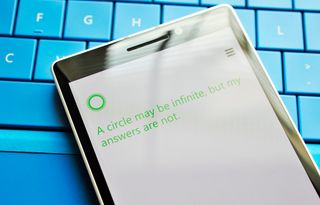The Cortana team takes your questions about going international

Microsoft's Cortana is one of the hottest topics that we cover these days for Windows Phone. Between the constant updates, improvements and its long-term potential, Microsoft's digital personal assistant is making waves across the globe. This response is even more impressive considering that Cortana is still technically US-based, though talk of imminent launches in China and the UK are heating up, in addition to other countries.
Speaking of expanding Cortana, Marcus Ash, Group Program Manager for Cortana on Windows Phone, recently commented that in expanding Cortana to other regions they "…learned a lot about scaling" and that it has been a "tough project." Ash's responses pose some interesting questions about the process involved, and we are itching to find out.
Marcus Ash and Sandeep Paruchuri, Program Manager at Microsoft, have volunteered their time to try an answer some of your questions about the process of expanding Cortana. Therefore, here is your chance to ask them in comments.
Ground rules
This is how this Q&A works, so read carefully!
- Please keep your questions limited to Cortana going international e.g. the kind of issues they had to face in regionalizing Cortana, different cultures, etc. (The Cortana team cannot not answer about specific country release dates or plans, so no need to ask)
- The Cortana team picks the five best questions that they can answer publicly to keep things concise (though they can pick more if they choose)
- Post your question in the comment section of this article
Answers will be posted soon in a follow up article on Cortana, so stay tuned! (We will close comments sometime early tomorrow)
Get the Windows Central Newsletter
All the latest news, reviews, and guides for Windows and Xbox diehards.

Daniel Rubino is the Editor-in-chief of Windows Central. He is also the head reviewer, podcast co-host, and analyst. He has been covering Microsoft since 2007, when this site was called WMExperts (and later Windows Phone Central). His interests include Windows, laptops, next-gen computing, and watches. He has been reviewing laptops since 2015 and is particularly fond of 2-in-1 convertibles, ARM processors, new form factors, and thin-and-light PCs. Before all this tech stuff, he worked on a Ph.D. in linguistics, watched people sleep (for medical purposes!), and ran the projectors at movie theaters because it was fun.
